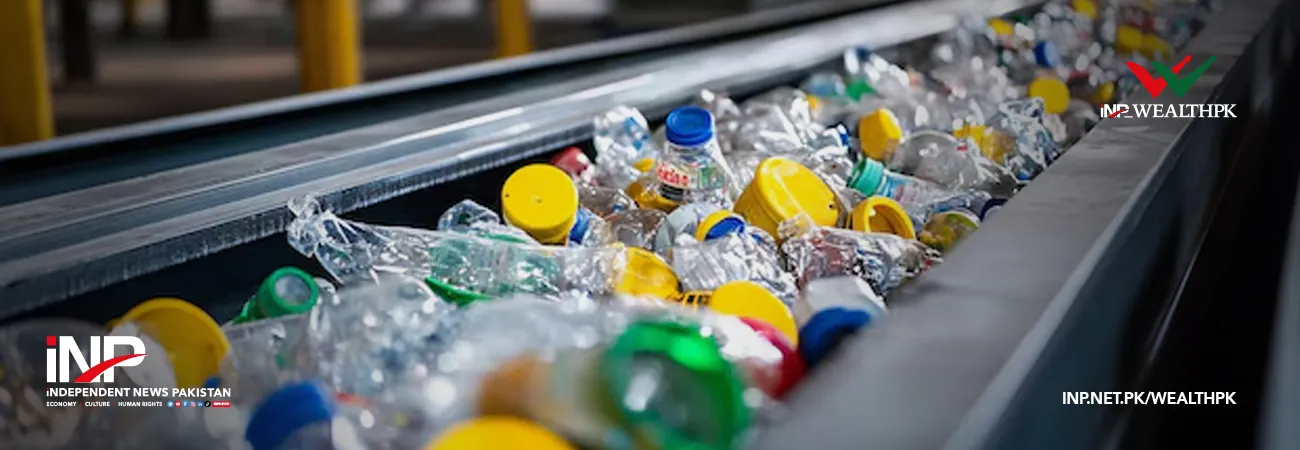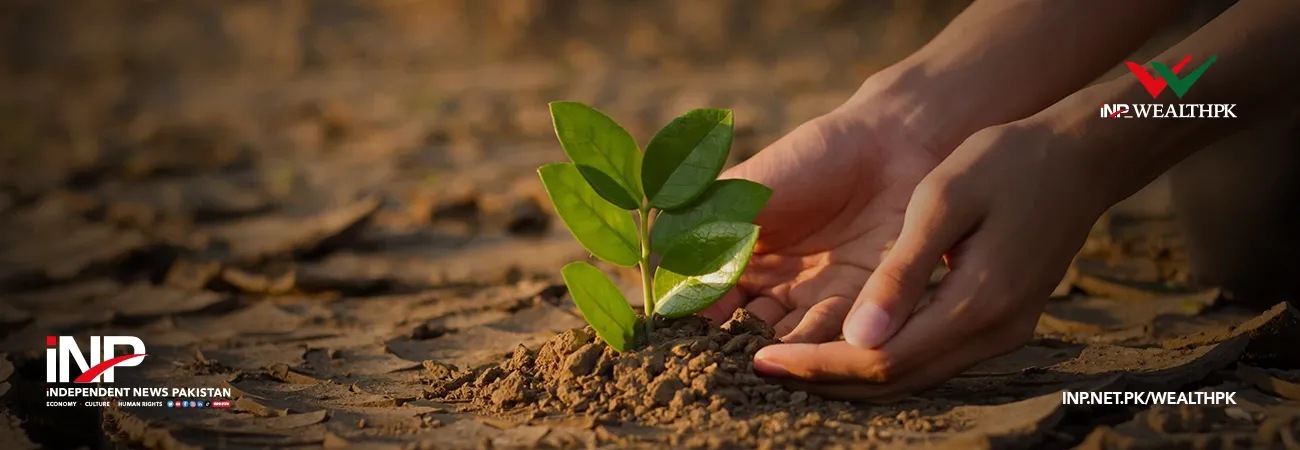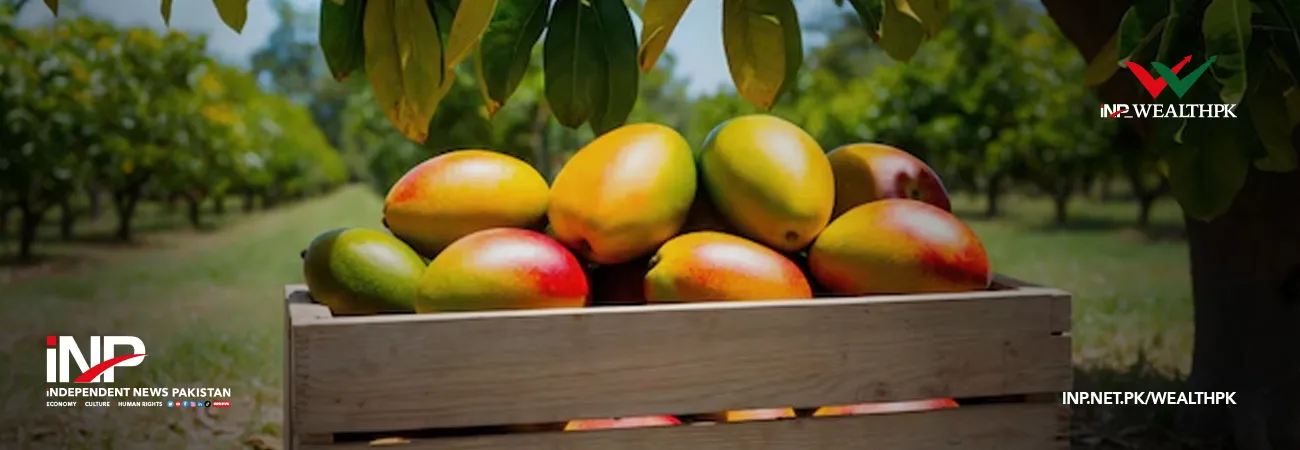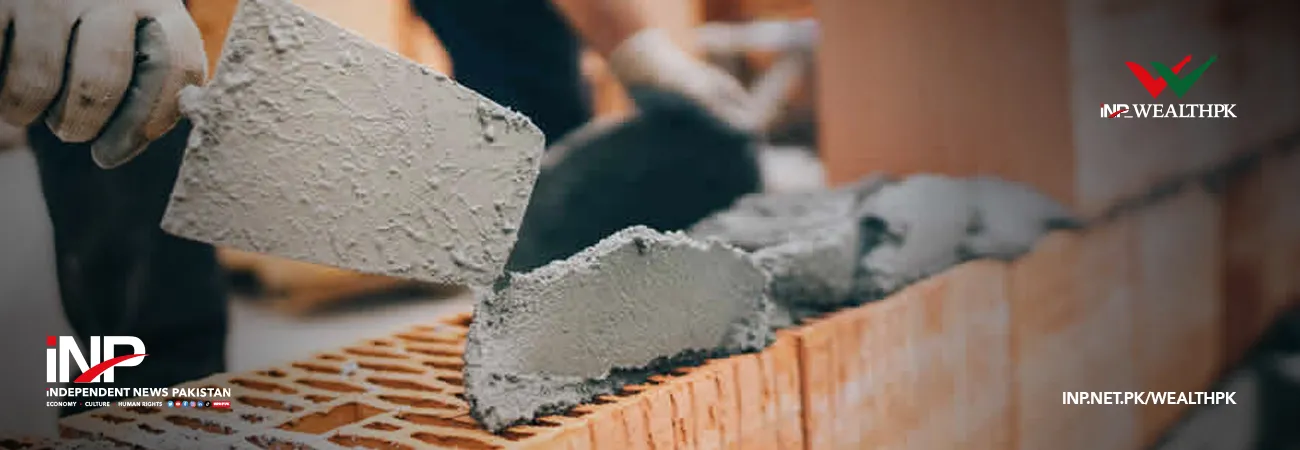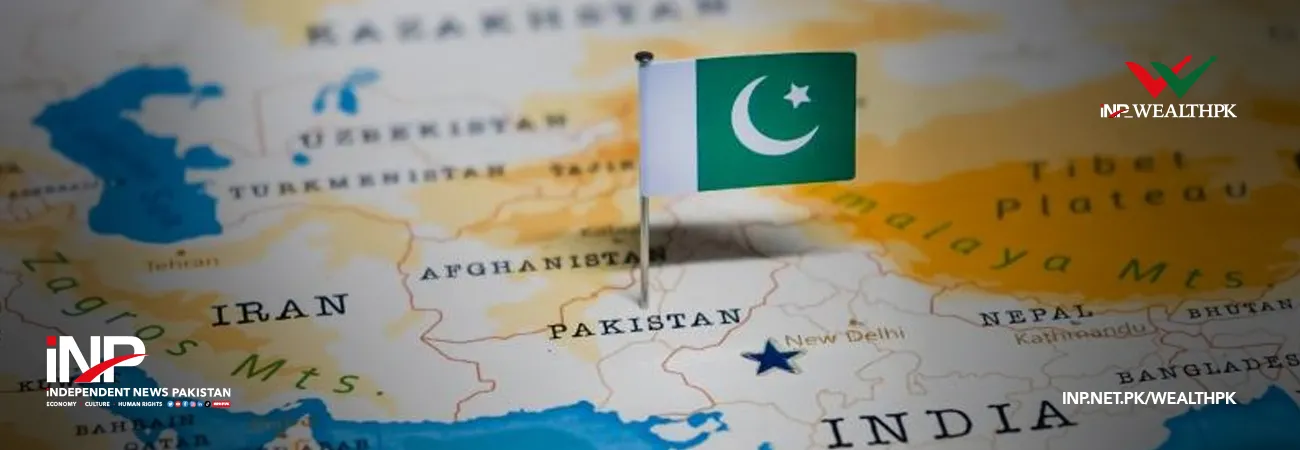آئی این پی ویلتھ پی کے
Muhammad Luqman
Being an affordable and durable material, plastic has found its way into every Pakistani home in the form of furniture, containers, and, above all, as packaging material or shopping bags.
According to data available from the Worldwide Fund for Nature (WWF), Pakistan generates around 3.3 million tons of plastic waste annually. Plastic bags make up a major portion of this waste, with approximately 55 billion plastic bags used by Pakistanis each year.
In the city of Lahore alone, 15 billion plastic bags are used annually. These are Low-Density Polyethylene (LDPE) bags, for which Punjab reportedly has the highest demand—approximately 1.3 million tons per year—for everyday use.
To meet the ever-growing demand for plastic bags, around 11,000 plastic manufacturing units, both formal and informal, operate around the clock. Of these, 65 percent are located in Punjab.
Plastic bags, generally considered an economical and convenient packaging material, typically end up in landfills, unmanaged dumps, or scattered across land and water bodies, persisting for years without decaying.
To address these environmental hazards, green technologies—such as additives that accelerate the decomposition of polythene bags—have been introduced into plastic manufacturing processes. However, adoption of these technologies by plastic manufacturers remains slow.
“The share of oxo-biodegradable bags is hardly 20 percent, while that of truly biodegradable bags is even less than one percent,” said Moazzam Rasheed, former chairman of the Pakistan Plastic Manufacturers Association (PPMA), in an interview with WealthPK.
Moazzam Rasheed, whose factory was a pioneer in producing biodegradable shopping bags in Pakistan, blames economic factors for the slow adoption of green technologies in the plastic sector.
“The production cost of plastic bags increases by 2 percent for oxo-biodegradable bags, while it rises by 300 percent for compostable or fully biodegradable bags,” Moazzam claims.
Oxo-biodegradable plastics are made from conventional plastics with additives that help them break down into smaller pieces when exposed to oxygen, whereas biodegradable plastics are made from materials that microorganisms can break down into natural substances like water, carbon dioxide, and biomass.
The industrialist said authorities have failed to convince the informal plastic bag manufacturing sector to adopt green technologies.
To discourage the production of hazardous plastic bags, federal and provincial governments have been active for the past two decades. In June last year, the Punjab government banned the production, sale, and use of single-use plastic bags, which are considered the most harmful.
“The implementation of the Plastic Bag-Free Campaign, based on the Punjab Environmental Protection (Production and Consumption of Single-Use Plastic Product) Regulations 2023, has led to a substantial reduction in the use of plastic bags,” claimed Sajid Bashir, spokesperson for the Punjab Environmental Protection Department.
The regulations, which ban plastic bags with a thickness of less than 75 microns, have been enforced through strict inspections and fines, contributing to a significant decline in plastic bag usage, he said.
“While the transition to biodegradable and compostable bags is still underway, there is a clear trend toward replacing traditional plastic bags with more sustainable alternatives,” Sajid Bashir told WealthPK.
He expressed hope that the e-Plastic Bag-Free Campaign has significantly raised awareness about the environmental hazards of single-use plastics, and that many businesses and consumers are increasingly adopting biodegradable and reusable bags.
Credit: INP-WealthPk


